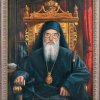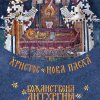Imprints in the Landscape: Serbian Toponyms in North America
Marinel Mandreš
Wilfrid Laurier University
Complementing an earlier article that identified Serbian place-names throughout the world, this composition concentrates upon commemorative appellations in the United States and Canada.1 It examines the historical circumstances by which existing, mistaken, altered, and apparent place-names arose; it also attempts to establish a naming pattern. North American geographical nomenclature includes numerous foreign designations that were not randomly chosen. Representing the intersection of geography and history, place-names preserve various aspects of a country’s national and cultural heritage that might otherwise be overlooked or forgotten by successive generations. Bestowed by early immigrants or offered by postal authorities and entrepreneurs, toponyms of a definite Serbian origin reflect prevailing attitudes towards Serbia and Montenegro at the time of their designation.



